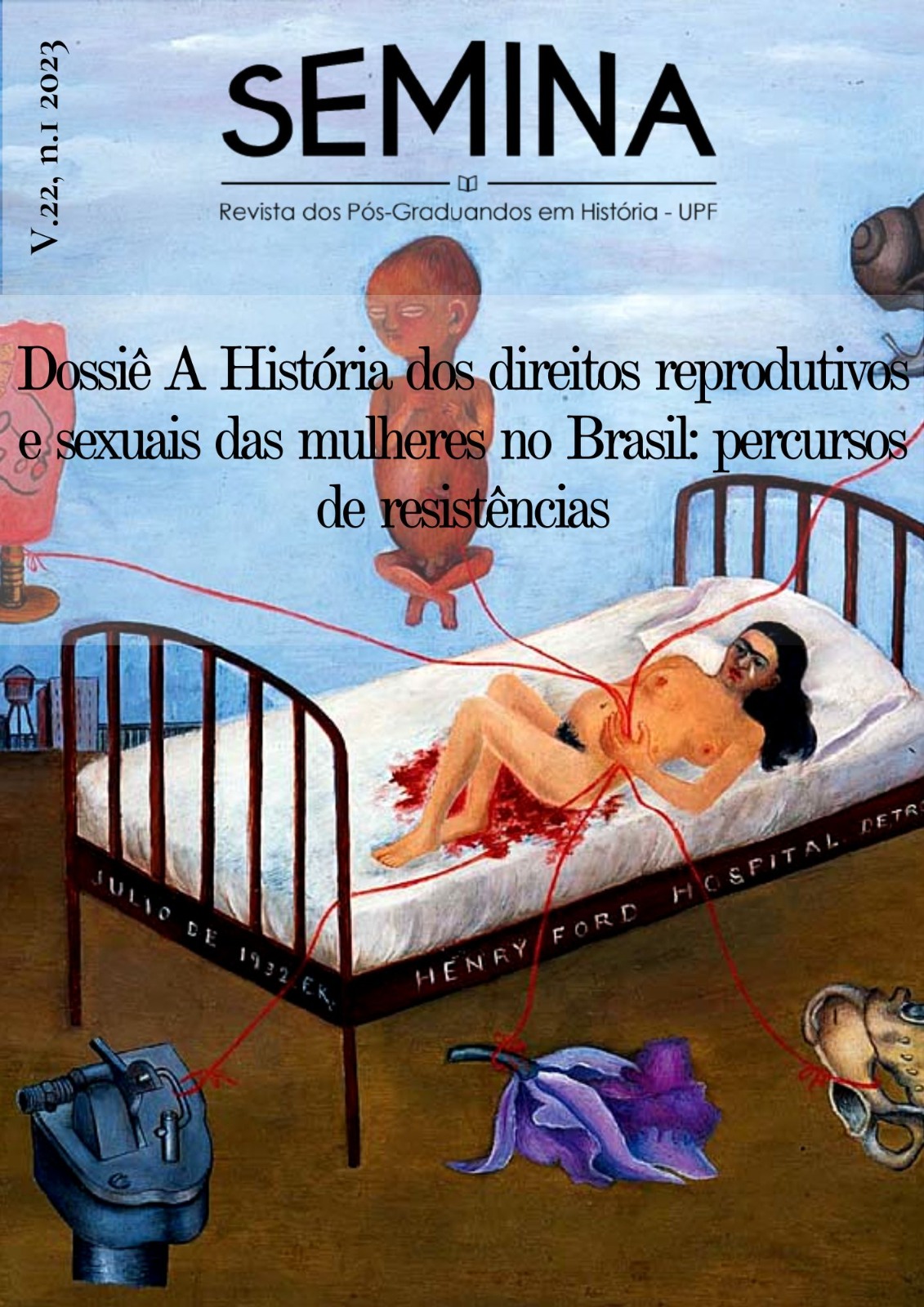Civic-Military school projects: a palliative for improvement in Brazilian education
a palliative for improvement in Brazilian education
DOI:
https://doi.org/10.5335/srph.v22i1.14231Keywords:
Civic-Military. Young; Education. behaviorsAbstract
The main objective of this article is to discuss effective actions and results on the importance of implementing the Civic-Military Schools within the States, which have contributed to reduce school dropouts and improve IDEB indices in the social configuration of Brazilian education. Seeking as a palliative to improve teaching in order to (re)shape the behavior of children and young people, and bringing in its core a specific concept of management in the educational area, this new model is being a well-regarded resource for parents and students, however, on the other hand, antagonistic groups opposed to this implantation. Thus, the Ministry of Education in Partnership with the Ministry of Defense, supported by the education secretariats of the Municipalities, have contributed in the didactic-pedagogical system to combat inequality and violence in the community as a whole, in the pillar of a democratic education, of course, having as a spearhead its monitors and managers, represented by the military from the reserve of the Armed and Auxiliary Forces, making parents, students, teachers and employees, commit to this project. In this way, the results point to a relative acceptability of the community close to the schools of this model and how much this project has contributed to a paradigmatic change in the current situation of education. With this, for the completeness of this article, the manual of the civic-military schools, interview with the military of this project and newspaper articles with criticism or not will be appropriate to demonstrate how much this model has changed behaviors and mentalities in various regions of the country.
Downloads
References
BRASIL. Luana Melody. Censura e vigilância: relatam rotinas da educação da militarizada. O Tempo, 2021. Disponível em: https://www.otempo.com.br/politica/censura-e-vigilancia-professores-relatam-rotinas-da-educacao-militarizada-1.2575660. Acesso em 04 fev.2022.
CASTRO, Gabriel de Arruda. Maioria das escolas que aderiu ao modelo cívico-militar registra redução da violência e de faltas. Jornal a Gazeta do Povo. Brasília, 25 de julho de 2021. Disponível em https://www.gazetadopovo.com.br/educacao/escolas-modelo-civico-militar-reducao-violencia-faltas/. Acesso em 27 jan.2022.
FLACH, Miguel ngel. Escolas cívico-militares, valores e família. Jornal GauchaZH educação, Rio Grande do Sul, 06 de dezembro, 2019. Disponível em https://gauchazh.clicrbs.com.br/opiniao/noticia/2019/12/escolas-civico-militares-valores-e-familia-ck3t02yzk02wh01llr66tn3xa.html, acesso em 07 fev. 2022.
FOUCAULT, Michel. Vigiar e punir: o nascimento da prisão. 36. ed. Petrópolis, RJ: Vozes, 2009.
FREIRE, Ana Maria Araújo e MENDONÇA, Erasto Forte (orgs). Direitos humanos e educação libertadora: gestão democrática da educação pública na cidade de São Paulo/ Paulo Freire. Rio de Janeiro/São Paulo: Paz e Terra, 2019.
HORN, Geraldo Balduino e MACHADO, Alexsander. Escola não é quartel Por que não podemos aceitar a militarização das escola públicas? Jornal o Sísifo, Outubro/2020 Vol. 03. p. 1.
LIAMA, Iana Gomes. Escolas cívico-militares: na contramão da democracia. Jornal da UFRGS, Jul/2020. Disponível em: http://www.ufrgs.br/jornal/escolas-civico-militares-na-contramao-da-democracia/. Acesso em 03 fev.2022.
LIMA, Jhonny. O horror dos abusos nas escolas militarizadas do AM. Blog da Cidadania. São Paulo: 13 out 2019. Disponível em https://blogdacidadania.com.br/2019/10/o-horror-dos-abusos-nas-escolas-militarizadas-do-am. Acesso em 05 fev. 2022.
LIMA, Iana Gomes de. Escolas cívico-militares: na contramão da democracia. Jornal da Universidade Federal do Rio Grande do Sul, 9 jul. 2020.
MENDONÇA, Erasto Fortes. Escolas cívico-militares: cidadãos ou soldadinhos de chumbo? Revista Retratos da Escola, Brasília, v. 13, n. 27, p. 621-636, set./dez. 2019. Disponível em: http://retratosdaescola.emnuvens.com.br/rde. Acesso em 3 fev. 2022.
SAID, Flávia. Núcleo que aconselha a campanha de Lula no campo da educação apregoa o fim do projeto. Da Rússia, Bolsonaro elogiou o trabalho das escolas. Revista Metrópoles, 15 fev.2022. Disponível em https://www.metropoles.com/brasil/politica-brasil/bolsonaro-defende-escolas-civico-militares-apos-pt-ventilar-fim. Acesso em 28 fev. 2022.
VALENÇA, Lucas. Gestão compartilhada: relatos de possíveis abusos. Coluna “Do Alto da Torre”. Jornal de Brasília. Brasília: 30 de outubro de 2019. Disponível em https://jornaldebrasilia.com.br/blogs-e-colunas/do-alto-da-torre/gestao-compartilhada-relatos-de-possiveis-abusos. Acesso em 03 fev. 2022.
Downloads
Published
Issue
Section
License
Autores que publicam nesta revista concordam com os seguintes termos:
- Autores mantêm os direitos autorais e concedem à revista o direito de primeira publicação, com o trabalho simultaneamente licenciado sob a Licença Creative Commons Atribuição 4.0 Internacional – CC-BY que permitindo o compartilhamento do trabalho com reconhecimento da autoria do trabalho e publicação inicial nesta revista.
- Autores têm autorização para assumir contratos adicionais separadamente, para distribuição não-exclusiva da versão do trabalho publicada nesta revista (ex.: publicar em repositório institucional ou como capítulo de livro), com reconhecimento de autoria e publicação inicial nesta revista.
- Autores têm permissão e são estimulados a publicar e distribuir seu trabalho online (ex.: em repositórios institucionais ou na sua página pessoal), a qualquer ponto antes ou durante o processo editorial, já que isso pode gerar alterações produtivas, bem como aumentar o impacto e a citação do trabalho publicado, de acordo ainda com a democratização científica prevista pela Ciência Aberta.





